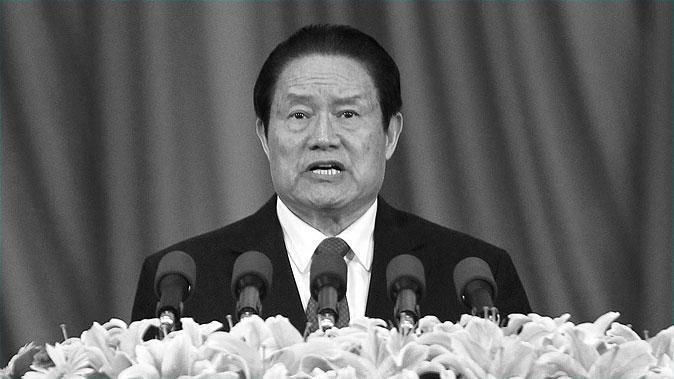China’s top court recently identified two formerly powerful, purged Communist Party members as having engaged in a plot together.
Zhou Yongkang, the former security czar, and Bo Xilai, a member of the Politburo, were said to have “engaged in political activities outside the Party”—tantamount to an admission that they had formed a conspiracy.
The case was highlighted by Zhou Qiang, the head of the Chinese Supreme People’s Court, in the report on legal work in China in 2014. Zhou said that in order to “strengthen discipline education and a clean judiciary, we must fully grasp how Zhou Yongkang and Bo Xilai trampled on the rule of law.” The “harm” caused by their conspiring needed to be recognized, he said.
“We must thoroughly expunge the vile influence that Zhou Yongkang had in violating the law and discipline of the the courts,” Zhou Qiang said. The term “discipline” usually refers to adherence to Communist Party dictate.
The Supreme People’s Court’s comments on the Zhou and Bo cases tracks with revelations that came out in the Hong Kong-based, pro-Beijing magazine Phoenix Weekly, which said that Zhou and Bo plotted on how to “completely negate Deng Xiaoping’s theory and implementation of reform and opening up,” installing instead a neo-Maoist regime, and “do something big.” Analysts interviewed said that, in China, talk of overturning the Party’s existing ideological system and reverting to a Maoist formulation of class struggle is on par with planning a coup d'état.





